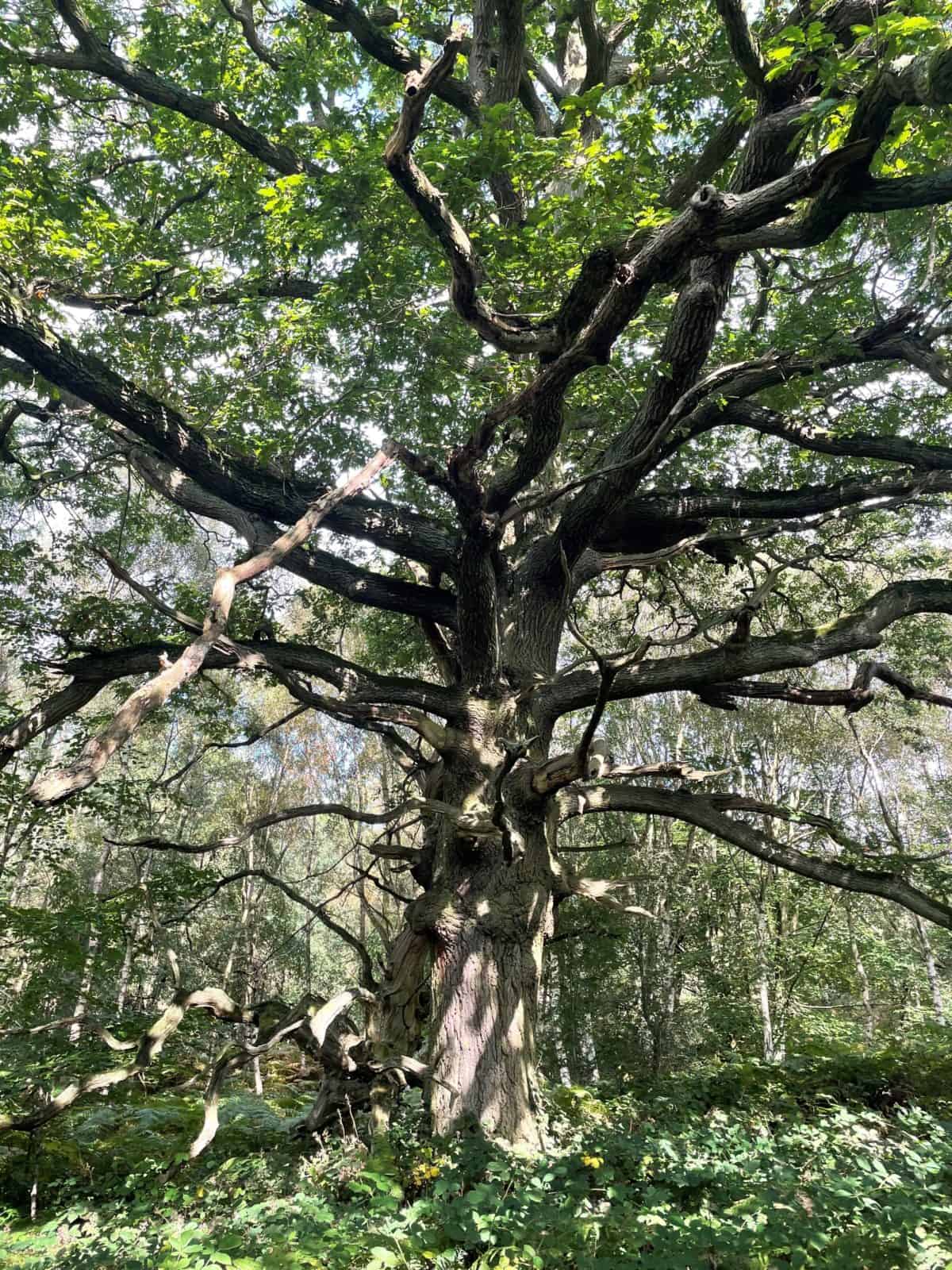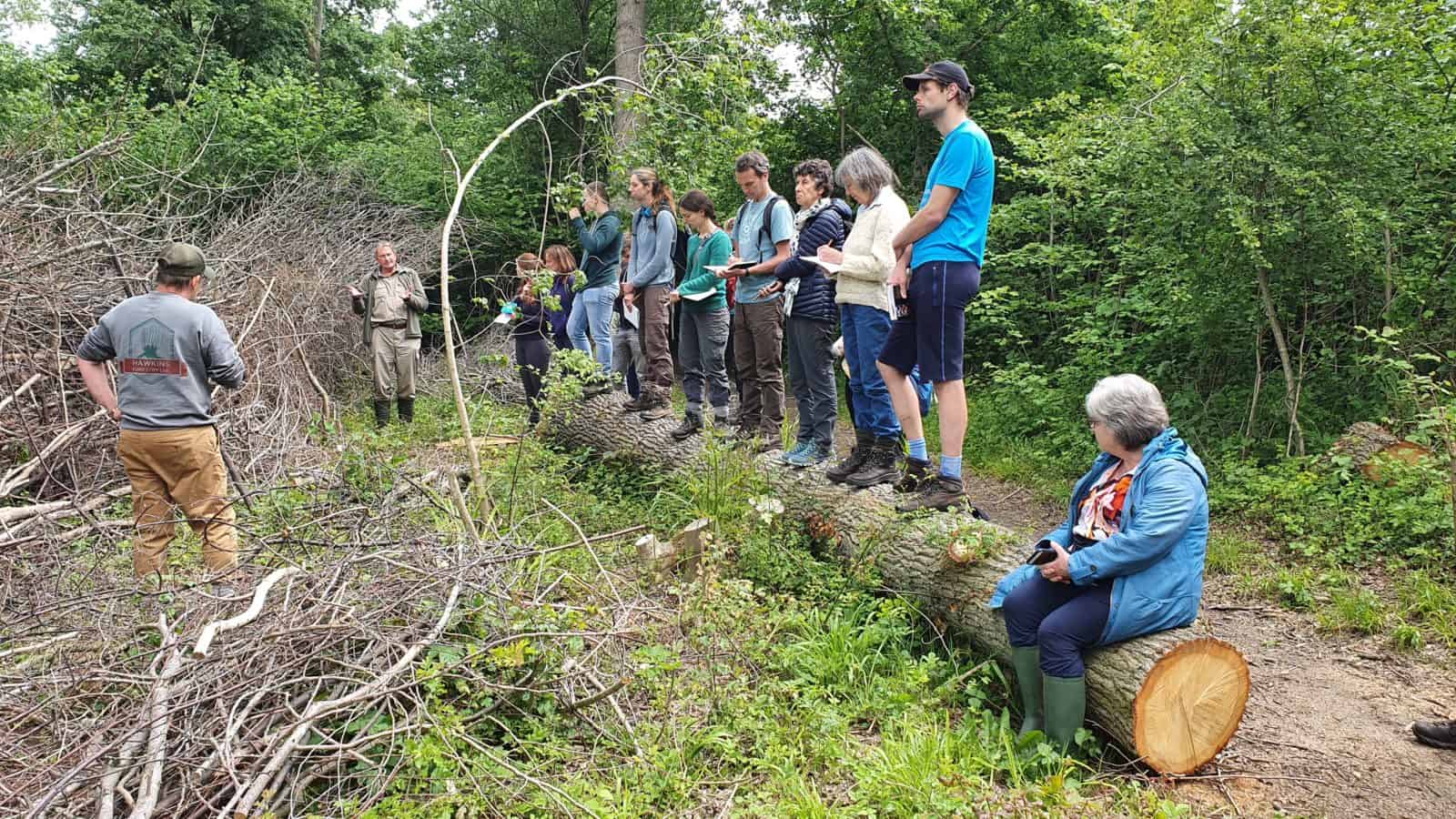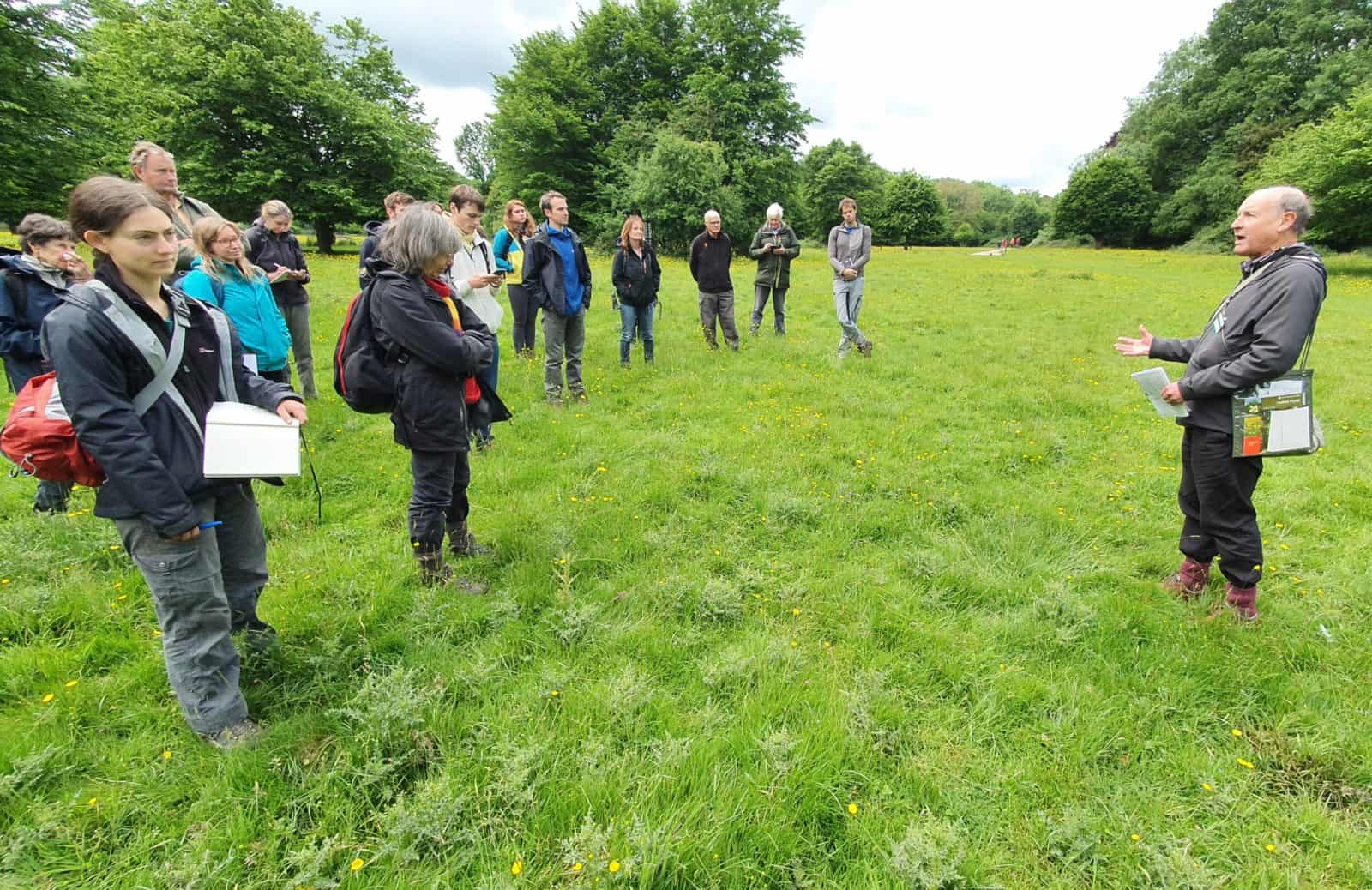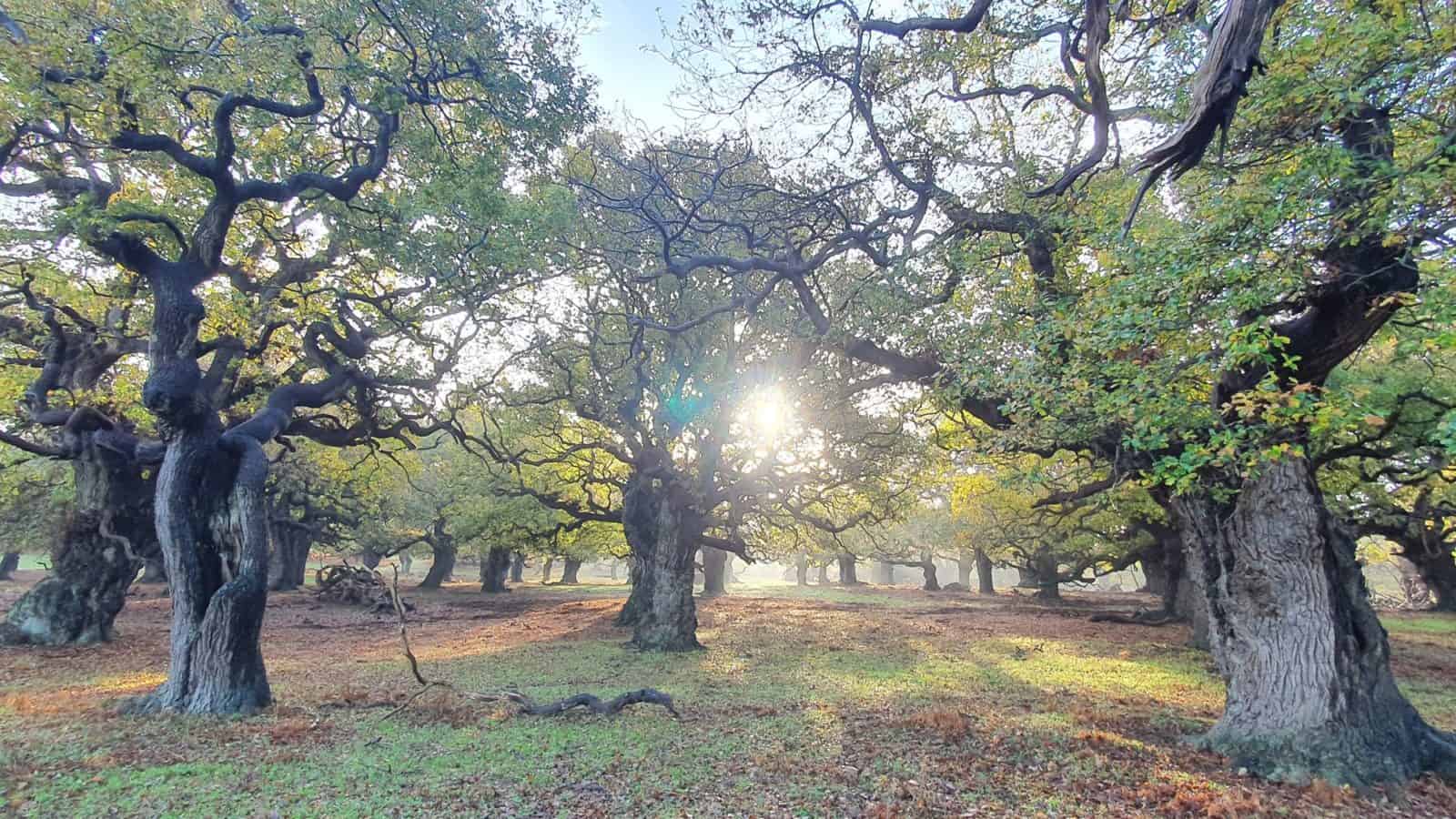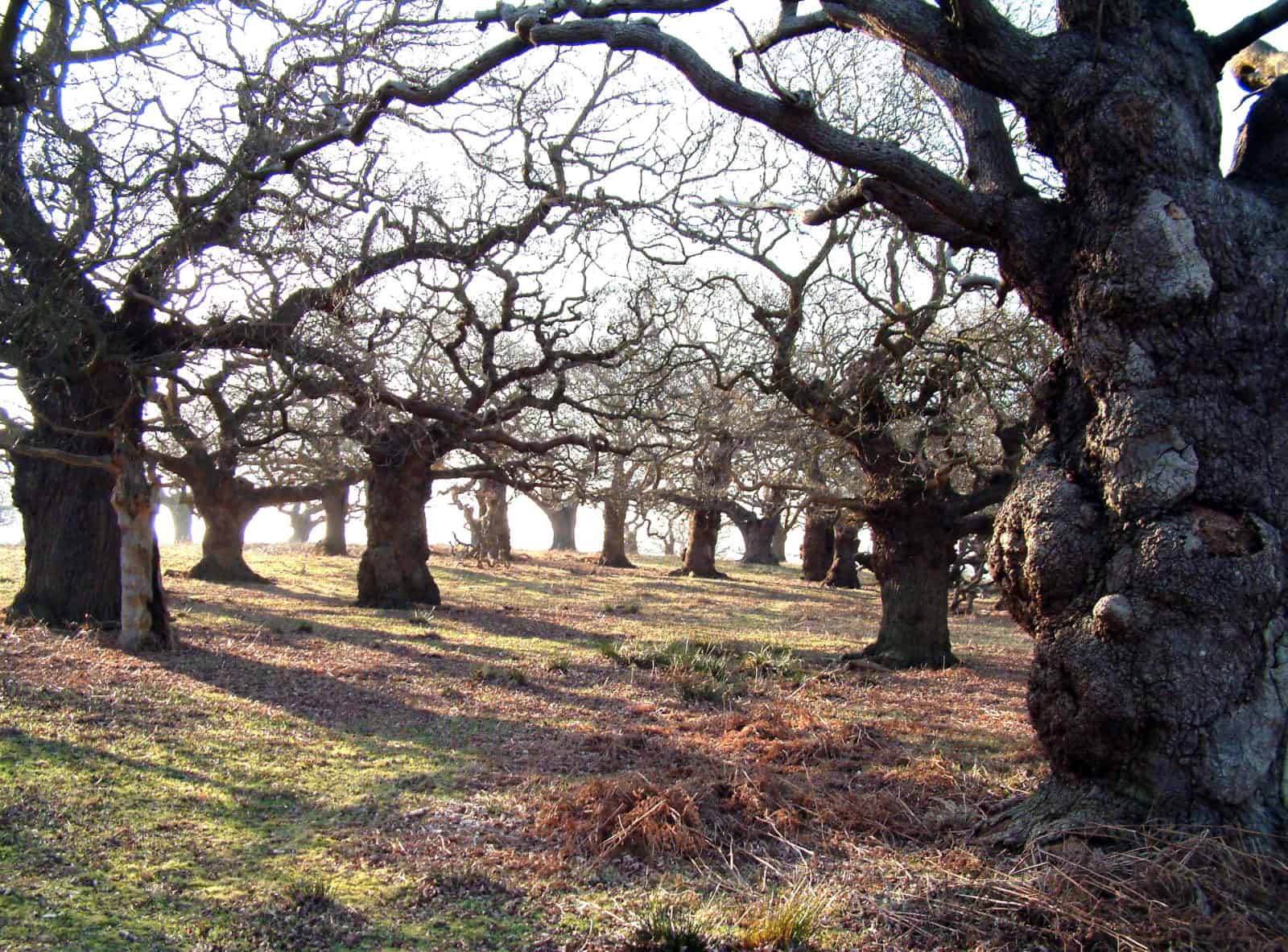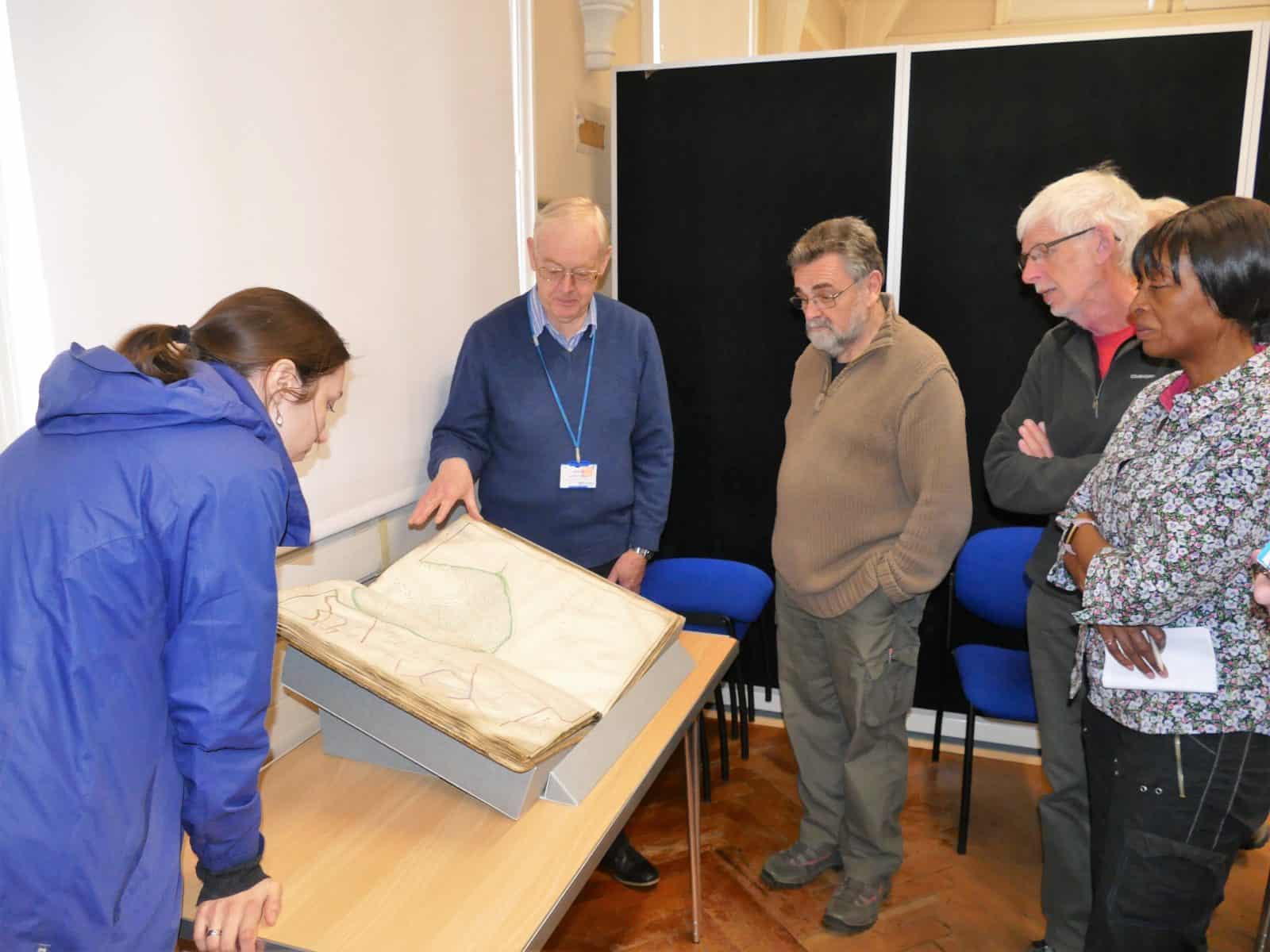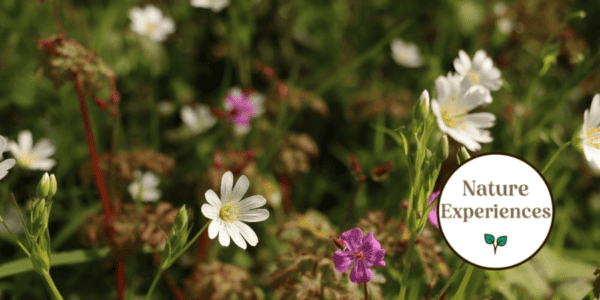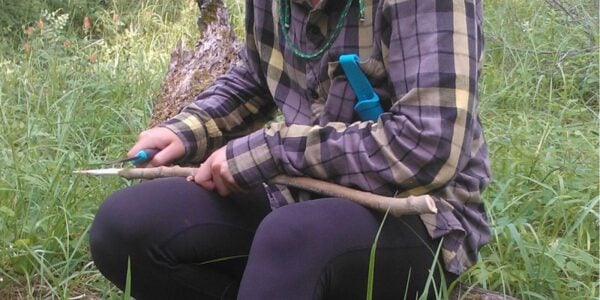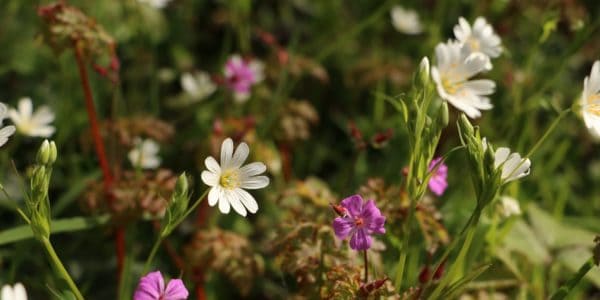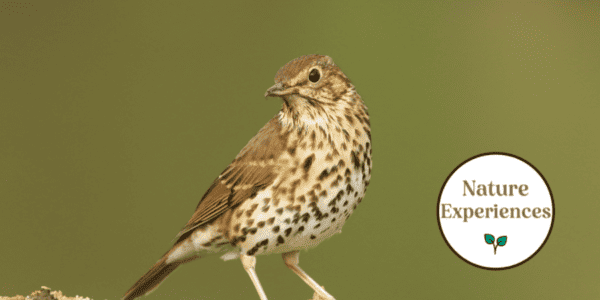A comprehensive exploration of the natural history and management of trees and woodlands. This course is a series of illustrated lectures and field excursions. You’ll be visiting some of the finest ancient woodlands in Suffolk and Essex. There will also be a visit to Staverton, one of the finest medieval parks in England.
Read more
Within reach of Flatford there is a rich variety of ancient woodland. Much of the time will be spent in the field, discussing woods in terms of their history, the effects of past management, their current and future management. During the week we hope to visit Hatfield Forest, Cressing Temple Barns, Bradfield Woods, Arger Fen, Spouses Grove, Bonny Wood, Chalkney Wood, Frithy Wood and Staverton Park. A programme for the week will be available on the first evening. There will be evening lectures to introduce and complement the field excursions.
The course, although directed towards woodland management, will also cover how native woods are managed and perpetuated. It will look at coppicing and other management practices and ride management; the reproduction of trees; Parkland and ancient tree management, tree decline and premature deaths. This course will be of interest to woodland owners, managers, foresters, contractors, parkland owners, owners and managers of ancient trees, historians, biologist, and anyone concerned with the management and conservation of woodlands. This course is run in memory of Professor Oliver Rackham who led the course for many years.
Please note: This course is not part of the Biodiversity learning framework, this course is organised by Flatford Mill and the tutor.
This course is not included in the BBCWildlife offer
About the tutor
Gary Battell, Simon Leatherdale and Dr Jonathan Spencer MBE
Gary Battell, Simon Leatherdale and Dr Jonathan Spencer MBE have all made significant contributions to British forestry, woodland and ancient tree management, PAWS restoration, rewilding, resilience and recovery.
Gary Battell previously worked for the Forestry Commission and the National Trust and is currently Suffolk County Council’s Woodland Advisor. Gary was a founder of the Ancient Tree Forum and was for many years a director and trustee of Small Woods and the Green Light Trust.
Gary is on the regional committees of the Royal Forestry Society and the Royal Geographical Society. In 2018 he was awarded the ‘Peter Savill award for services to forestry. Gary made a huge contribution to the development of the biomass industry in England. Over the last 12 years he has been studying tree diseases and has advised Defra and supported Forest Research and FERA.
Simon Leatherdale worked for the Forestry Commission for 37 years where he made a significant contribution to the PAWS restoration of 15 ancient woodlands in East Anglia and was supported by his friend, Professor Oliver Rackham OBE. Simon has been the owner of Tyler’s Wood for 28 years. Simon has a passion for Maritime woodland which he expects to be researching for another 3 years before the book sees the light of day! He describes himself
as a generalist and was one of the people who delivered the rewilding at Dunwich that was instigated by Jonathan Spencer.
Dr Jonathan Spencer MBE was the Head of Planning & Environment Forest Enterprise, England until his retirement. Over the past twenty years Jonathan’s work has included establishing the extent and character of ancient woodland and forest across the UK, especially in England. Jonathan has contributed to a wide range of species conservation actions and species reintroductions, the conservation of rare plants, fungi, insects, birds, reptiles and mammals. Jonathan has also directed the management of designated conservation areas within forests and open habitats across England, and has established management regimes for large herbivores, both wild and domestic, in conservation programmes on wood pastures, wetlands and heathlands, and he has addressed and resolved conflicting policy challenges whilst integrating economic opportunity and necessity into environmental and wildlife conservation management.
All the leaders have made significant contributions to British forestry, woodland and ancient tree management, PAWS restoration, rewilding, resilience that have brought natural capital and ecosystem service benefits and in doing so they have given support to others and generated enthusiasm!
About Flatford Mill
We have four buildings that are used for visitor accommodation. Whilst most rooms are either en-suite or have a dedicated bathroom, there are some rooms in The Mill that share showers and toilets at the end of the hall. If this is un-suitable for you please make the office staff aware upon booking or as soon as possible.
Please be aware that you are visiting a Field Centre that caters in the main for school parties; the accommodation is basic and dormitory style, but warm and comfortable.
Explore our range of nature courses hosted by our engaging tutors and learn from their expertise and knowledge. Our nature experiences are a chance to meet like-minded people, a chance to unwind from everyday life, and a great opportunity to experience the UK’s glorious wildlife and the surrounding countryside of our field centres.
Example Timetable
Arrival Day
Check-in is between 1400-1800, if you are arriving after 1800 please advise us, so we can ensure you are advised of access codes, room key location, and room location.
You will meet the tutor at dinner, and you will have your first session after dinner.
What's Included
Full board accommodation and picnic lunch is available for resident bookings only.
Refreshments are included for all, but non-resident bookings are advised to bring lunch with you.
Before You Attend
What to bring
Weatherproof clothing and hat, stout shoes or walking boots, wellingtons and umbrella will be needed. A water bottle, camera/s and binoculars, notebooks and pencils would also be useful.
Please note that a fair amount of brisk walking is involved on this course most days. Please be prepared for this and for some standing in the woods as you listen to discussion points. A shooting stick or equivalent outdoor stool may be useful if you have difficulty standing for long periods.
Opportunities to attend this course
This course is not currently available to book. Dates will follow soon.
Sign up to our Email Newsletter

